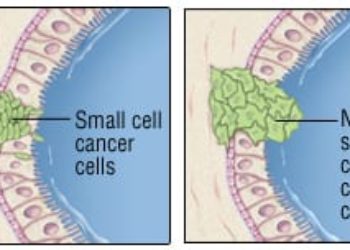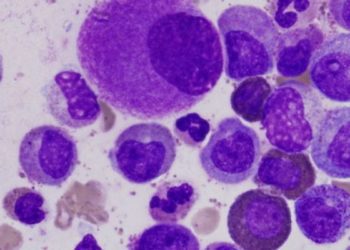Risk of short-term prostate-specific antigen recurrence and failure in patients with prostate cancer
1. For patients with unfavorable nonmetastatic prostate cancer aged above 70 years, PSA levels above 10 ng/mL, and Gleason scores of 8 to 10 were significantly associated with shorter time to prostate serum antigen (PSA) failure which is associated with all-cause mortality and worsened clinical outcomes.
2. Patients with all three of the aforementioned risk factors were at significantly higher risk of early PSA failure and were identified as a group that could benefit from early treatment escalation.
Evidence Rating Level: 2 (Good)
Study Rundown: Prostate cancer remains a significant health concern worldwide, and understanding the factors contributing to its recurrence is crucial for effective management. More specifically, the interval of time to PSA failure is correlated to clinical outcomes. A recent secondary analysis of the Dana-Farber Cancer Institute 05-043 randomized clinical trial has shed light on the risk of short-term PSA recurrence and failure in patients with prostate cancer. In this secondary analysis, data from patients with nonmetastatic unfavorable risk prostate cancer (PC) who were randomized (1:1) to receive either androgen deprivation therapy (ADT) and radiation therapy (RT) plus docetaxel versus ADT and RT alone was analyzed. Several factors were assessed for their association to time to PSA failure. Overall, this study found that a younger age (< 70 years), PSA levels of 10 ng/mL or more, and Gleason scores of 8 to 10 were predictors of shorter time to PSA failure. The results of this study also highlighted a particularly high-risk group for early PSA failure (those with all three of the aforementioned risk factors) who may benefit from early treatment escalation.
Click to read the study in JAMA Network Open
In-Depth [retrospective cohort]: One of the most diagnosed cancers in the world, prostate cancer remains a significant health concern for men worldwide. Despite definitive cancer management, there is still a high rate of recurrence. The time to PSA failure was also found in this clinical trial to be a significant predictor of all-cause mortality if less than 30 months, and a predictor of other negative clinical outcomes if less than 2 years. Thus, the current secondary analysis of this phase 3 clinical trial investigated the risk factors associated with short-term PSA recurrence and treatment failure in patients with prostate cancer. Researchers also sought to identify predictive factors that could help clinicians tailor treatment strategies for improved patient outcomes. A total of 350 patients above the age of 30 (median age 66; range 43-86 years) with adequate hematological function and an Eastern Cooperative Oncology Group (ECOG) performance status score of 0 or 1 were recruited if they were diagnosed with nonmetastatic unfavorable risk prostate cancer (PC). They were randomized (1:1) to receive treatment with androgen deprivation therapy (ADT) and radiation therapy (RT) plus docetaxel, or ADT and RT alone. After the end of treatment, males were followed up with every 6 months for the first 5 years and annually thereafter for serum PSA levels, and median follow-up was 10.2 years. PSA failure was defined as PSA nadir plus 2 ng/mL or initiation of salvage therapies. Three factors were associated with a significantly shorter time to PSA failure, with the first being PSA levels. The association if levels were elevated between 10 ng/mL to 20 ng/mL (subdistribution hazard ratio (sHR) 1.98; 95% CI [1.28,3.07], p = .002) was significant but PSA levels above 20 ng/mL were stronger (sHR 3.44; 95% CI [2.25-5.26]; p < .001). The second and third factors were Gleason scores of 8 to 10 (sHR 2.55; 95% CI [1.63,3.99], p < .001) and older age (sHR 0.82; 95% CI [0.72-0.93], p = .002). Furthermore, analyses conducted dividing patients into either high risk or low risk categories (high risk if they possess all three of the identified risk factors for early PSA failure and low risk if less than three factors were present) demonstrated a 43.8% risk of PSA failure at 3 year follow-up (95% CI [31.8%-55.2%]) and overall shorter interval to PSA failure (p < .001). Results of this study also identify this ‘high risk’ group as a potential target for escalation in therapy, which should be a target for future clinical trials.
Image: PD
©2023 2 Minute Medicine, Inc. All rights reserved. No works may be reproduced without expressed written consent from 2 Minute Medicine, Inc. Inquire about licensing here. No article should be construed as medical advice and is not intended as such by the authors or by 2 Minute Medicine, Inc.









